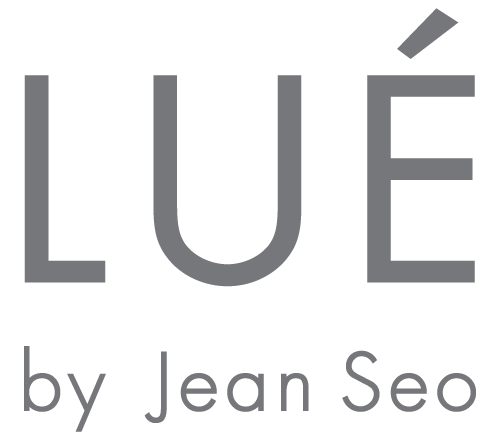Blackheads, those pesky little spots that appear on our skin, can be a nuisance and affect our overall complexion. They are a common skin issue, often occurring due to clogged hair follicles or pores. Fortunately, there are numerous effective methods to banish blackheads and restore a clear and radiant complexion. In this article, we will explore what blackheads are, and then delve into 12 proven ways to bid farewell to these stubborn blemishes.
What are Blackheads?
Blackheads are a type of acne characterized by small, dark spots that appear on the skin's surface. Technically known as open comedones, blackheads form when hair follicles become clogged with a combination of sebum (the skin's natural oil), dead skin cells, and bacteria. Unlike whiteheads, which are closed comedones, blackheads have an open pore, allowing the accumulated material to be exposed to the air. This exposure causes the trapped sebum and dead skin cells to oxidize, resulting in a dark or black appearance.
Blackheads typically appear on areas of the skin that have a higher concentration of oil glands, such as the nose, chin, forehead, and sometimes on the back and shoulders. They can affect people of all ages and skin types, but those with oily or combination skin are more prone to developing blackheads.
Several factors contribute to the formation of blackheads, including hormonal changes, genetics, poor skincare habits, and the use of comedogenic (pore-clogging) skincare or makeup products. High humidity and sweating can also exacerbate blackhead formation, as they contribute to increased sebum production and accumulation.
It's essential to distinguish blackheads from other types of blemishes like whiteheads, papules, and pustules to implement the most effective treatment methods. While blackheads are not typically painful or inflamed, they can lead to more severe acne if left untreated.
How to Get Rid of Blackheads
-
Regular Cleansing: Proper cleansing is the first line of defense against blackheads. Wash your face with a mild, non-comedogenic cleanser twice a day (morning and evening) to remove dirt, excess oil, and impurities. Avoid using harsh soaps or cleansers that can strip the skin of its natural oils, as this may trigger increased sebum production.
-
Steam Your Face: Steaming your face is an excellent way to open up the pores and facilitate blackhead removal. Boil water and carefully lean over the pot, draping a towel over your head to trap the steam. Allow the steam to work on your skin for about 5-10 minutes, then pat your face dry and proceed with blackhead extraction or other treatments.
-
Use a Blackhead Extractor: A blackhead extractor tool is a small, metal instrument with looped ends that are specifically designed for safely and hygienically removing blackheads. To use the extractor, gently press the looped end around the blackhead, applying even pressure to encourage its extraction. However, it is essential to be cautious and not apply excessive force, as this can cause skin damage or scarring. For stubborn or deep blackheads, it's best to consult a dermatologist or skincare professional.
-
Clay Masks: Clay masks are excellent for drawing out impurities, excess oil, and debris from the pores. Choose a clay mask with ingredients like kaolin or bentonite clay and apply it to your face. Allow it to dry completely before rinsing it off with warm water. This process helps unclog pores and reduces the occurrence of blackheads.
-
Tea Tree Oil: Known for its antimicrobial and anti-inflammatory properties, tea tree oil can help reduce bacteria on the skin's surface and soothe irritation caused by blackheads. Mix a few drops of tea tree oil with a carrier oil (such as coconut or jojoba oil) and apply it to the affected areas with a cotton pad.
-
Baking Soda: Baking soda, also known as sodium bicarbonate, is a natural exfoliant that can help remove dead skin cells and unclog pores. Create a paste by mixing baking soda with water and gently massage it onto the affected areas in circular motions. Rinse thoroughly with water and follow up with a moisturizer.
-
Honey and Cinnamon: A combination of honey and cinnamon can act as a natural antibiotic to combat bacteria and reduce inflammation associated with blackheads. Mix a tablespoon of honey with a pinch of cinnamon powder and apply it as a mask on the affected areas. Leave it on for 10-15 minutes before rinsing off.
-
Aloe Vera Gel: Aloe vera gel is renowned for its soothing and anti-inflammatory properties. Applying aloe vera gel to blackhead-prone areas can help reduce redness and irritation. Moreover, aloe vera can promote the healing of damaged skin and prevent scarring caused by blackhead extraction.
-
Green Tea: Green tea contains antioxidants and anti-inflammatory compounds that benefit the skin. Applying cooled green tea to blackhead-prone areas can help reduce inflammation and regulate excess oil production. Green tea's antimicrobial properties can also inhibit the growth of acne-causing bacteria.
-
Lemon Juice: Lemon juice contains citric acid, a natural exfoliant that can help remove dead skin cells and unclog pores. However, be cautious when using lemon juice, as it can be harsh on the skin, especially if you have sensitive or dry skin. Dilute lemon juice with water and apply it to the affected areas using a cotton pad. Avoid sun exposure after using lemon juice, as it can make the skin more sensitive to UV rays.
-
Mild Exfoliation with Oat Flour: Oat flour is a gentle exfoliant that can help slough off dead skin cells, reducing the chances of clogged pores and blackhead formation. Create a paste by mixing oat flour with water or a gentle cleanser, and massage it onto damp skin in circular motions. Rinse thoroughly with water and pat your skin dry. Oat flour exfoliation not only helps unclog pores but also nourishes and soothes the skin, making it suitable for sensitive skin types.
-
Proper Diet and Hydration: Apart from topical treatments, maintaining a healthy diet and staying hydrated is crucial for clear and radiant skin. A diet rich in fruits, vegetables, whole grains, and lean proteins provides essential nutrients that support skin health. Additionally, drinking an adequate amount of water helps flush out toxins from the body and keeps the skin hydrated, preventing excessive oil production.
Takeaways
Blackheads are a common skin issue caused by clogged pores and excess sebum. To get rid of blackheads effectively, adopt a consistent skincare routine that includes regular cleansing, steam treatments, and the use of appropriate products like blackhead extractors, clay masks, salicylic acid, and tea tree oil. Natural remedies like honey and cinnamon, aloe vera, green tea, lemon juice, and oat flour exfoliation can also aid in minimizing blackheads while promoting healthy and glowing skin. Additionally, maintaining a well-balanced diet and staying hydrated contributes to overall skin health and can help prevent blackhead formation.
Remember that everyone's skin is unique, so it's essential to find the most suitable methods and products for your specific skin type and concerns. If you experience severe acne or are unsure about the best approach for your skin, consult a dermatologist or skincare professional for personalized advice and treatment. With patience, diligence, and a holistic approach to skincare, you can achieve a clear and blemish-free complexion, free from the clutches of blackheads.
Products We Recommend

Erase
Cleansing, exfoliating and brightening powder. It rolls off dirt, pollution, makeup, and congestion with spherically milled organic oat flour. Soothes irritations and promotes skin cell renewal as gently as possible. If you're a traveler we also have a to-go version with 10 individual sachets you can also get it in Walmart.
Learn more about it here.
SEE ALSO: Morning Skincare Routine: The Correct Order Of Your Favorite Products
Featured image by Polina Kovaleva.


